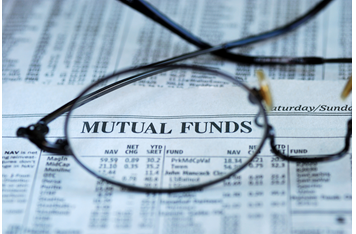6 Tips to Investing In Homes | Real Estate Investment
Investing in real estate is one of the best ways to ensure a great return on your investment (ROI), especially as the housing market is now starting to see signs of a real recovery.
Investing in Bonds or CDs is likely to produce dismal returns over the next several years, mostly due to the prevailing low-interest environment.
While equity markets might be a good bet for some investors with a strong risk appetite, the high volatility (compared to housing) will likely keep many investors away.
Are Bonds a Good Investment in 2014?
How to invest in homes?
Due to the relatively large unit cost that comes with real estate investments, investors need to be extra diligent when making home investment decisions.
Here are 6 tips that will help ensure you are on the right track:
1. Understand your goals
Before ploughing down that first down payment, stop a while and think why you want to invest in homes.
Is your goal to make a fast profit by flipping the property? Or do you want to invest in a rental home? Or perhaps you're in it for the long haul – to hold until you need the capital, by which time property prices could have doubled or more.
Your choice of what type of a home to invest in will be determined by your investment goals, so it's vital to get that one right!
Quick Guide – 5 Things You Should Know about Roth IRAs
2. Do your homework
While there are a number of professional real estate investment advisory firms that can set you on the right track, it is also imperative that you do your own research, as an individual investor, before committing your hard earned nest egg (or part of it) into investments in homes.
Since your investment is likely to be a sizable one, it behoves you to "learn the lingo", know the risks, and understand the real estate investment environment before jumping in with both feet.
[newsletter2][/newsletter2]
Understanding US Savings Bonds | Quick Guide for Investors
3. Budget carefully
As part of doing your homework, you'll need to understand what it means to be a home "investor" versus a "homeowner".
Depending on what your initial investment objectives were (see tip#1 above), you may need to budget for more than what an equivalent home would cost if you were living in it.
A rental property will require you to plan for regular maintenance and up-keep. And even a "quick turn over" home might require you to budget for taxes, rates, commissions and fees that owning your own home usually doesn't entail.
Certificate of Deposit | Quick Tips for New and Average Investors (CDs)
And if you are plan to borrow the funds that you’ll be investing, you need to think carefully what it could mean if there is a spike in interest rates down the road.
Factor all of these things into your budget model before taking the plunge.
4. Location! Location….Location!
Obviously, just as you do when you “buy to own” a home, paying attention to the location of your investment home is essential.
If you are buying to rent, you need to understand the psychology and demography of prospective renters.
Will they want to be near schools, shopping centers and other amenities? Will they be commuters using public transport, or are they likely to be car owners needing close access to highways and main roads?
Selling a Home? 6 Reasons Why Homes Don't Sell, and What to Do About it
If you intend to buy and hold for the long-term, you need to look for properties in a growth area where home prices are likely to appreciate as a result. If you intend to live in the property (for any length of time) before selling, consider your own location needs.
5. Roll up your sleeves
In most cases, it pays to have professionals help you. But depending on the type of home you invest in, sometimes it might be more cost-effective for you to "do it yourself".
Replacing light bulbs, changing a window pane, switching locks on the doors and many other similar chores are relatively simple to learn and do.
Depending on professional help all the time might end up eating significantly into your profit margins in the long run.
Here are 6 Easy Ways You can Save Money in 2014
6. Beware of the paperwork
Investing in homes requires you to have a particular affinity for paperwork.
Contractor work orders, legal documentation, insurance company requirements, building permits, city and municipality paperwork, banking and finance company documentation, etc.
While your agent/legal advisor will brief you on all of these documents, make sure you read them at least once, and ask questions of qualified professionals if you don't understand any of the details.
[newsletter1][/newsletter1]
6 Great Jobs for Stay at Home Moms and Dads
Monitoring your investment
Investing in homes can be a very rewarding experience, but only if you are willing to take the time to get involved with the major aspects of the investment.
But just as equity investors keep their fingers on the stock market's pulse, property investors must also continually monitor their investments.
Your Taxes for Last Year – Brief Overview of Current Tax Brackets and Rates
Whether your goal is to buy and quickly sell, hold for the long term or rent out for income, you need to ensure that you are able to keep a close eye on your investment. That's why investing in remote areas (or even overseas), where you have no regular access to the home, might not be such a good idea.
[related1][/related1]





